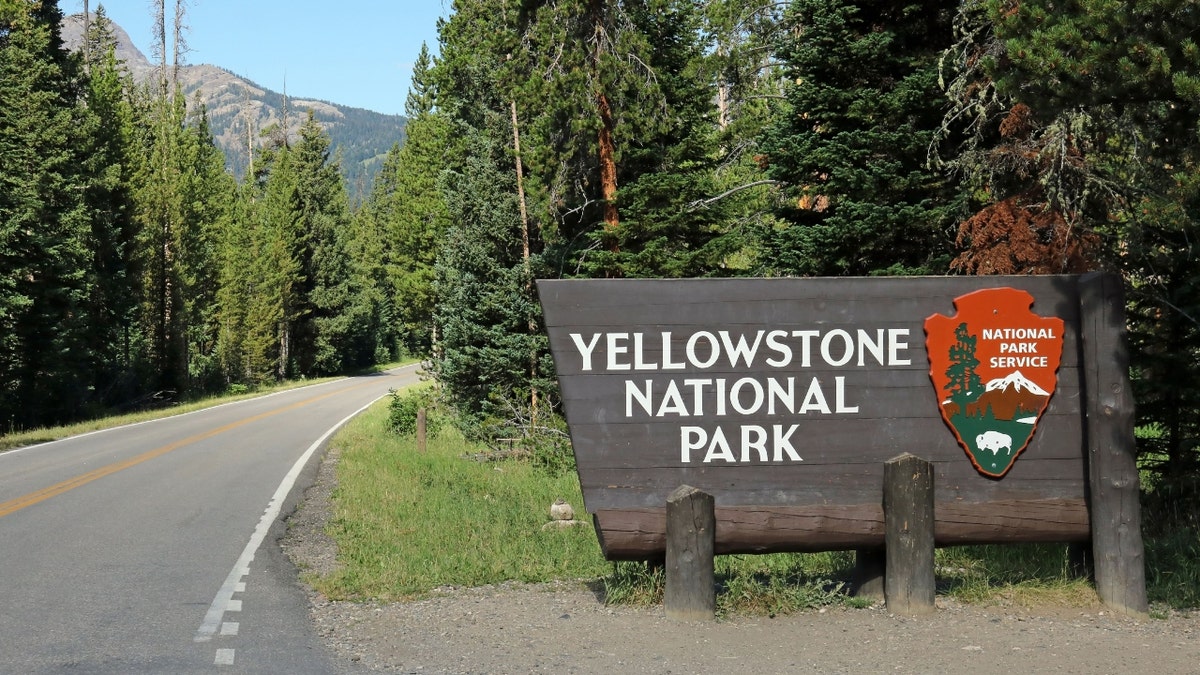NEWYou can now listen to Fox News articles!
National Park Service (NPS) rangers tracked down and cited a man who was seen on video approaching a wild wolf pack at Yellowstone National Park and spraying them with a suspicious substance.
Footage showed the unidentified man hopping toward the unbothered animals, seemingly taunting them as they retreated.
As he was backing up, the wolves started running toward him, at which point he started spraying an unknown substance in their direction.
COLORADO PARKS AND WILDLIFE RANGER CHARGED WITH STAGING FAKE STABBING INCIDENT THAT LOCKED DOWN SCHOOLS
NPS officials said the incident was reported to rangers, who later found and cited the man.
It is unclear what led the man to make the brazen advance, or what was in the spray captured on video.
While the incident remains under investigation, it does not appear the animals were harmed.

FLORIDA WOMAN WRESTLES ALLIGATOR TO RESCUE PUPPY IT DRAGGED INTO CREEK
“We would recommend all visitors remember the following: Wolves may look beautiful, even fluffy from a distance, and that is part of their appeal. But they are still powerful wild predators, and treating them like pets puts both visitors and the animals at risk,” NPS wrote in a statement to Fox News Digital. “The National Park Service reminds all visitors that while our parks are open and accessible, they remain true wilderness. Wildlife are unpredictable and approaching them puts people and animals at risk.”
They added when visitors get too close to wildlife, they may feel threatened and act in self-defense, especially if their young are nearby.
“It is the visitor’s responsibility to maintain a safe distance at all times,” the NPS wrote. “Never approach, feed or disturb wildlife. If an animal moves toward you, back away and give it space. Zoom with your lens, not with your feet.”

Human interaction can also harm wildlife by becoming habituated to human presence, which increases the likelihood of dangerous encounters and can disrupt hunting, feeding and breeding behaviors, according to the NPS.
In some cases, animals that become too familiar with people must be relocated or euthanized to protect public safety.
Read the full article here









